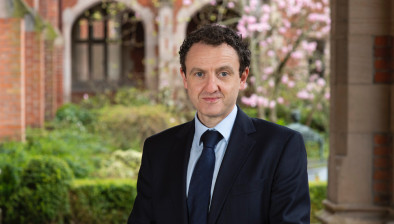Academic project on unity referendums urges need for ‘clear plan’ before vote
It would be highly unwise for referendums on the constitutional future of Northern Ireland to be called without a clear plan for what follows, a major 18-month research project has concluded.
The Working Group on Unification Referendums on the Island of Ireland, established by the UCL Constitution Unit, has published the final report of its research into how any future referendums would best be conducted.
The working group, which published an interim report last November, brought together legal academics from north and south of the border as well as from Great Britain and the United States.
Dr Alan Renwick, deputy director of the UCL Constitution Unit and chair of the working group, said: “The future of the United Kingdom is highly uncertain at the moment, with potential implications for the whole island of Ireland. Pressure for an independence referendum in Scotland is strong, and the Protocol has created real tensions in Northern Ireland.
“The working group is not pushing for a referendum on Northern Ireland’s constitutional future in any way. But we are saying that such a vote might be legally required in the not-too-distant future. Everyone involved needs to think through carefully what that process would be like.
“The working group has done the groundwork of establishing the issues that need to be addressed and weighing the merits of different options. We urge the relevant political actors to give our analysis their serious and considered attention.”
Professor Oran Doyle of Trinity College Dublin, a member of the working group, said: “Our report interprets the Belfast/Good Friday Agreement to identify the legal parameters for any unification process.
“We conclude that unification would require referendum approval, north and south. These referendums need not be simultaneous, but must occur close in time, and the voters in each referendum must vote on effectively the same proposals. The threshold for approval in each referendum would be a simple majority of those voting on the day.
“If voters in Northern Ireland and the Republic of Ireland approved unification, then unification must occur. It cannot be conditional on any subsequent vote. Moreover, Ireland and the UK must each respect the outcome of the referendums, irrespective of what the other state does.”









